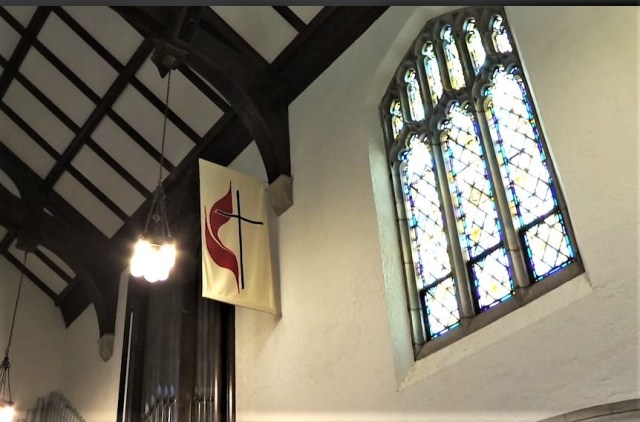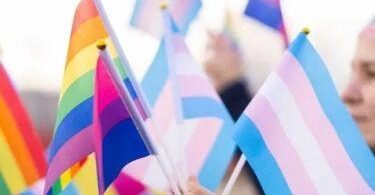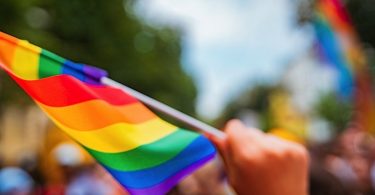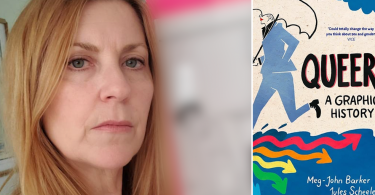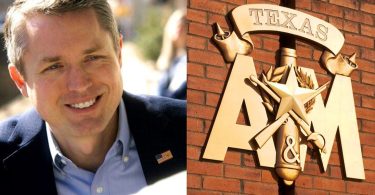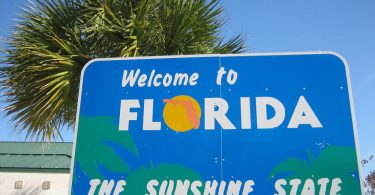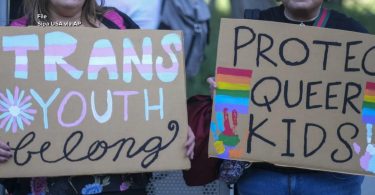by: Jeff Keeling, Clarice Scheele
Posted: May 17, 2024 / 07:18 PM EDT
Updated: May 17, 2024 / 07:19 PM EDT
JOHNSON CITY, Tenn. (WJHL) — Sylvann Fox found a welcoming United Methodist Church (UMC) in the Tri-Cities even before the denomination’s recent doctrinal changes surrounding LGBTQ clergy, members and weddings — but they strongly support the shift.
“Any time that there is an opportunity for more inclusivity and more openness and an opportunity for people to be their authentic selves in the face of others, that is always a positive thing,” Fox, who is openly LGBTQ, told News Channel 11.
The UMC writ large may be much more welcoming to LGBTQ Christians than it was several weeks ago, but a UMC leader who supports the changes says LGBTQ members coming out at church — not to mention gay marriages and openly LGBTQ clergy — will be a process in some regions.
“This is still East Tennessee, and it tends to be more conservative in this area,” Lauri Jo Cranford told News Channel 11. Cranford spent about two decades in UMC pulpits and served as District Superintendent of the Holston Conference’s Johnson City District until about a year ago.
She’s now a counselor and said while she longs for the day when LGBTQ members feel safe being fully out at church and others who’ve left venture back, that’s almost certain not to happen quickly. She hasn’t heard of anyone in the area coming out since the church changed its “Book of Discipline” late last month.
“I believe that people who are LGBTQ are still hesitant to be very vocal about that if they fear that they will be judged, or especially if that’s their church home and they want to be able to stay,” Cranford said. “So I think that’s going to be a slower transition for us on the local church level.”
Like Fox, Jessica Fuller is an openly LGBTQ Tri-Citian who grew up attending church and has ties to the UMC, though like Fox, she doesn’t currently attend. Both say they’re glad delegates to the denomination’s April 23 to May 3 general conference in Charlotte, N.C., voted overwhelmingly to allow same sex weddings, ordain openly LGBTQ clergy and remove language calling “the practice of homosexuality … incompatible with church teaching.”
“I think the ruling is amazing — I think it’s great,” said Fuller, who doesn’t currently identify as Christian after growing up in an area UMC. “I think that this decision is putting more love into the world and it’s putting more good than bad, and I think that’s overall a really great thing.”
But Fox and Fuller also both say their experience in the church and how human sexuality was viewed and discussed left some scars.
Fox realized they were LGBTQ while growing up in a fundamentalist church in Sullivan County. They spent some time away from the church, “like a lot of queer people,” because of the church’s stances on sexuality — only to return at least for a time as an adult.
“It is my belief and my hope that the church, regardless of the denomination but specifically for the UMC, that they are able to build a longer table and invite more people to come, regardless of who you are, regardless of who you love,” Fox said.
Fuller said she’s seen changes over the past decade or so, making it “easier to be yourself and have your faith if that’s what you want.” At the same time, she said, “I know that this vote caused a lot of division within the church, and I hate to see that.”
A few votes do not make a tectonic shift
LGBTQ people have been active and important within Holston Conference churches — which encompass East Tennessee and parts of Southwest Virginia — since there was a Holston Conference.
“Going back to my first appointment where I had four little churches in Wythe County, Virginia, I’ve had a gay person or a number of gay people in every church I’ve served,” said Randy Frye, who has pastored UMCs in the conference for more than four decades.
The pastor of First Broad Street UMC in Kingsport is theologically conservative on human sexuality but said he hopes the elimination of exclusionary language from the Book of Discipline will result in a positive change for LGBTQ Christians and their involvement with the UMC. But like Cranford, Frye doesn’t expect LGBTQ members to start openly discussing their sexuality inside the church right away — or for people who’ve left the denomination to come flooding back.
“Because we dropped the language from the Book of Discipline, I’m not under the illusion that that’s going to suddenly bring a great influx of LGBTQIA people,” Frye said.
Cranford said she thinks some churches “will get there faster than others.”
“We don’t have any in the area who are specifically saying, ‘Hey, come here, we have rainbow flags out, come join us — yet.’ I do believe there will come a time that churches will be exploring what that could mean and how they can reach out.”
One reason she expects a “process” rather than a sudden transformation is because the Holston Conference’s pews still seat many members who haven’t come to terms with the change, or are downright hostile toward it. That’s even after about 30% of Holston churches left the denomination last year during a disaffiliation process.
“You’ve got churches that lean more one way than another; you have churches that are emphatic on different stances,” Cranford said. “I think that that’s something that pastors are being very cautious about navigating, as well as members are being very cautious and navigating, trying to figure out what this does or how this affects their congregation.”
‘Why did God make me like this’ a ‘really painful thought to have’
Jessica Fuller said she wasn’t attending church by the time she realized she wasn’t straight, but the process of recognizing she was a member of the LGBTQ community caused her to “deconstruct” her religious background.
“I was brought up to believe that (Christianity) was focused on love and you should love other people,” she said.
The message that a queer person couldn’t marry in the church, be a pastor, or “be [themselves] and have [those] things, that didn’t feel like love to me,” Fuller said.
Fuller said her memories of the UMC she grew up in are generally of a loving place and she never heard “sermons that were like, gay people are going to hell … I don’t want it to come off like I was traumatized.”
But as she processed her sexual identity and her church background, Fuller said one thought she had was, “Well, if God loved me and God made me, why did he make me like this? If it’s wrong, you know, that’s a really painful thought to have.”
“It was just that feeling of not really belonging and feeling like I couldn’t be myself and have this religion, which at the time was really important to me.”
Fuller said that dichotomy wasn’t the only reason she now considers herself agnostic, but “it was a big one.”
Fox’s journey has been similar, but they still feel drawn to the church and Christianity. They said after time away, they began reading people like Nadia Bolz-Weber, a prominent progressive theologians and the late Rachel Held Evans.
That self-education, Fox said, got them “to a point where I felt like I could reconcile those two things and they weren’t two halves of myself that had to be kept apart — that I was able to reconcile them and be both a queer person and and a person of faith.”
They’re hopeful others within the UMC can experience the same type of reconciliation and, as they put it, “be their full, true and authentic selves in the eyes of God.”
“Clergy members within the UMC who have had to hide that part of themselves, I imagine just the incredible sigh of relief that it is to be able to stand and show all parts of themselves, show this part that they felt like they’ve had to hide or hold back …
“Just be able to stand and say, you know, this is who I am and who I am is made in the image of God, and God has said that who I am is good and who I am is blessed and who I am is whole.”
Fox: There’s a way forward — I’ve seen it done
Fox saw firsthand what a local UMC congregation and pastor could do to welcome and include them while still operating under the old rules. They were in a theater production directed by Melissa Malcolm and became friends with her.
Malcolm eventually invited Fox to St. Matthew’s UMC in Kingsport, where Fox said they found a congregation that was “incredibly welcoming, incredibly kind, and they are committed to making a difference not just for the City of Kingsport but for the Tri-Cities.”
“They were allowing openly queer people to join and be full members of the church, to serve in the church,” Fox said.
“I believe that the understanding was at that time that churches … as long as they were within the bounds of the Book of Discipline, they were allowed to operate as they saw best served the Gospel and best served their people.”
Fox said they fully understand the discomfort this change is causing for some in the UMC fold.
“We live in a very predominantly theologically conservative area of the world and they don’t call it the buckle of the Bible Belt for no reason,” they said.
“I would like to have an opportunity to sit down and have those conversations with people and say, you know, I understand where you’re coming from. And my not so much challenge, but my request would be, come at the Scripture with an open mind … and we will come with the same with the same willingness to listen as long as there is a willingness to be heard.”
Fox said watching some of the footage from the UMC General Conference made them happy and that they want to be part of the conversation about the path forward.
“The opportunity right now is these people who kind of had the door shut in their face before, or they were able to stick a toe in the door, but they weren’t able to fully be in and be a part of the church.”
“Because they’re able to have those conversations now, that is going to be an opportunity for the UMC to get better because there are these viewpoints that are now able to have a voice at the table.”
Cranford — a lifelong Methodist whose theology turned progressive on human sexuality when a close friend in her campus ministry group came out to her in college — said she sometimes finds herself frustrated by the pace of change and grieving for the church.
“If we as a church are saying we want people to be fully who they are called to be by God, who they are created to be by God, and yet we are not allowing them to be fully who they are, then that’s where a lot of the pain occurs…
“I think when a person feels like they have to hide part of who they are to be a part of a church, then the church isn’t getting the fullness of who they are, and they aren’t getting the unconditional love in return. So I do think it’s a loss on both sides.”
But Cranford said the decisions at the general conference were a huge step forward, and she’s also hopeful.
“We used to have the slogan, open doors, open hearts, open minds,” she said. “I’m very hopeful that we will actually live into that. That has always been something that I’ve hoped for, that people can truly be who they are.”
Copyright 2024 Nexstar Media Inc. All rights reserved. This material may not be published, broadcast, rewritten, or redistributed.
Latest Video
Vols win another SEC series; top Gamecocks, 8-3
2 hours ago
1 injured, 1 arrested after Wise Co. shooting
3 hours ago
Kingsport Junction Development Update
3 hours ago
300+ units in development near TRI
8 hours ago
Audible’s Prime Day deal gives you 3 months free
Holiday / 10 hours ago
Best gaming deals for Prime Day
Desktop Computers / 11 hours ago
Best electric razor deals of Prime Day
Hair Removal & Shave / 13 hours ago
Top Stories
More Stories

